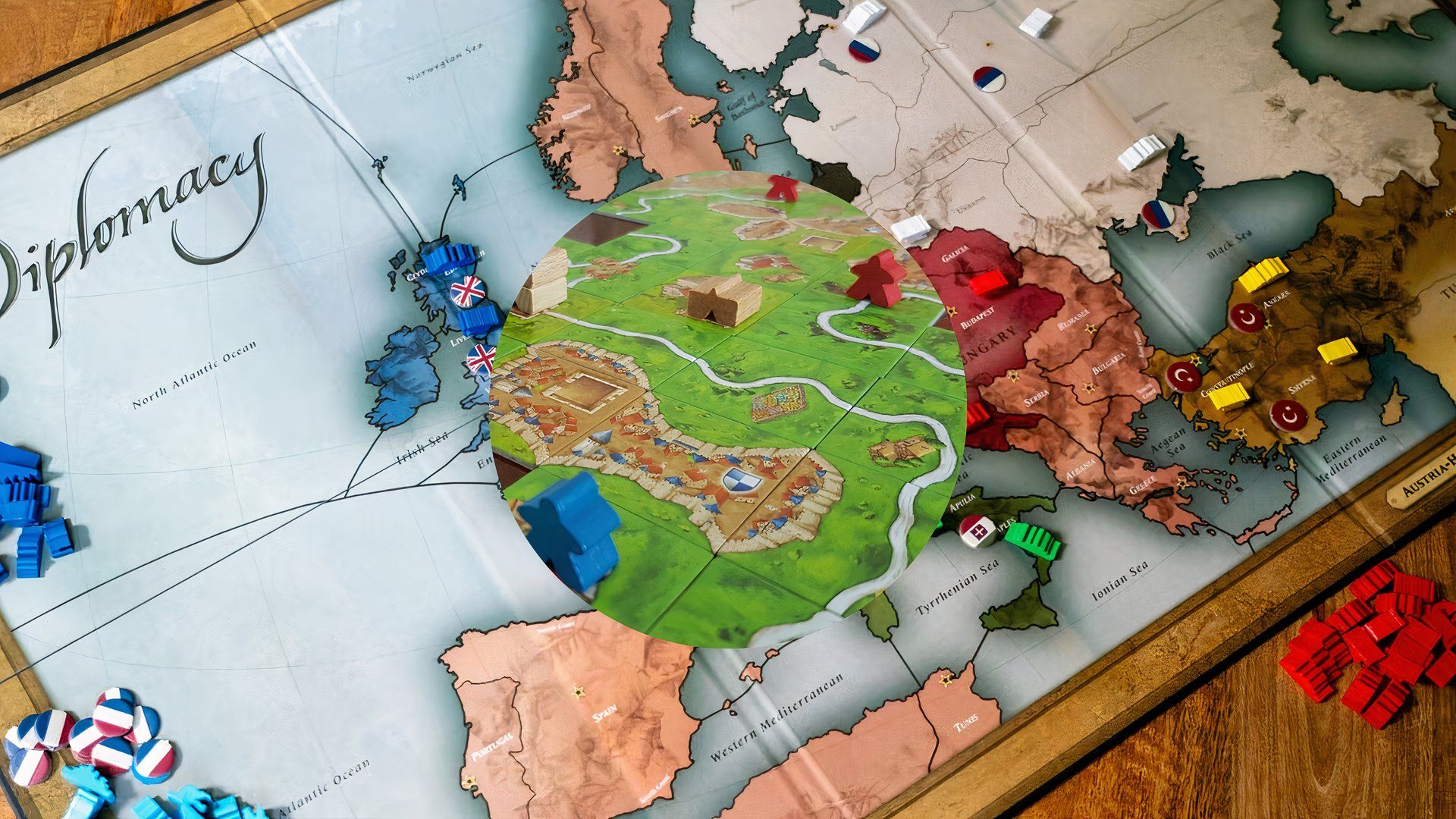These Well-Intentioned Home Rules Will Ruin These Board Games

House rules usually come from a good place. Someone thinks the official rules are “too harsh” or “not fair,” so they patch it with a tweak, and suddenly, you’ve got Monopoly with slot machines or Catan where nobody ever suffers.
The problem is, those little tweaks often hollow out the game’s soul. I’ve been at tables where one shortcut stretched the night three hours too long, or where “making it fair” drained all the tension. These are the rules people swear improve games, but secretly ruin them.
Monopoly
Free Parking Jackpot
Everyone’s uncle has this rule: fines and taxes go into the middle, and the lucky soul who lands on Free Parking takes the pot. It sounds thrilling until you realize it keeps bankruptcies at bay for way too long. I once played a six-hour family-friendly Monopoly because a cousin hit Free Parking three times.
The game should snowball into a collapse, but instead, it dragged on like a hostage situation. If you want faster Monopoly, auction properties as written. Don’t build a lottery.
Catan
Robber Amnesty
Nobody likes being the target of the robber, especially in the opening rounds. So some groups agree: 'No robber until turn three.' Sounds kind, right? The problem is that it protects whoever lucked into the best starting spots.
They run away with the game while everyone else twiddles their thumbs, waiting for the robber to clock in. I’ve lost track of how many Catan nights were basically over before they began because of this. Harsh as it feels, the robber’s job is balance.
Pandemic
The Extra Action Rule
I’ve sat down to Pandemic and heard someone chirp, 'Hey, let’s give ourselves one more action each turn. It’ll make it fairer.' Yeah, and while we’re at it, let’s let the diseases wave white flags.
The whole game hinges on the fact that you can’t do everything, and that pressure creates incredible teamwork. Toss in a fifth action, and suddenly the cities never spiral out of control. It turns a nail-biting crisis simulator into a breezy puzzle night. Fun, maybe, but not Pandemic.
Risk
Reinforcement Inflation
One game of Risk I joined had a 'double reinforcements every turn' rule, supposedly to speed things up. Instead, it created army stacks so big we needed calculators just to count dice. Each battle lasted longer than some entire board games.
Risk is already notorious for being exceptionally long to play, and this house rule stretched it into a grim endurance test. If you’re worried about time, play on a smaller map or try Risk Express. Don’t inject the game with steroids.
Ticket To Ride
Route Sharing
Some groups let multiple players claim the same route. On paper, it feels nicer; nobody gets blocked from their big cross-country dream. But that sting of being cut off is exactly what fuels Ticket to Ride’s drama.
I once played a sharing version, and it felt less like a competitive board game and more like kids quietly building toy train tracks. If your group really hates blocking, there are official variants like Europe or Nordic Countries that soften the pain without neutering the tension.
Carcassonne
Unlimited Meeples
Carcassonne is all about scarcity: you’ve only got a handful of meeples, so every placement feels important. My group once decided to 'just add two more' so things felt less punishing. The board instantly filled with little wooden people, and suddenly every road and city was clogged with competition.
Instead of clever timing, it turned into chaos. Carcassonne works because you’re constantly torn between scoring now and holding back. Take away that choice, and you’re not really playing Carcassonne anymore.
Gloomhaven
Extra XP
The grind in Gloomhaven is part of its design as a campaign board game. Earning XP and loot slowly makes every little upgrade feel monumental. But when our group decided that leveling was too slow and doubled XP rewards, it backfired hard.
We were unlocking items and perks at lightning speed, but the game quickly lost its challenge. By the midpoint of the campaign, we’d breezed through so much content that nobody felt invested anymore. If you want to tweak difficulty, lower monster levels. Don’t inflate progression.
Arkham Horror
Softening the Chaos Bag
The chaos bag is Arkham Horror’s way of reminding you that cosmic dread doesn’t play fair. It's one of the best Lovecraftian games for horror fans. However, some groups house-rule away the nastiest tokens or allow free redraws. The result? A horror game where nothing truly bad ever happens.
I’ve been in games where the worst token was gone, and it felt like reading a Lovecraft story where the monster never shows up. The suspense evaporated. Arkham lives in those moments where one unlucky pull wrecks your plan, and you lean back, groaning, but grinning.
Diplomacy
Binding Treaties
Once, I joined a Diplomacy group that decided all written deals were legally binding. Break one, and you lost points. On paper, it sounded like a tidy way to keep things fair. In reality, it killed the entire game. Nobody betrayed anyone, nobody schemed, and the infamous backstabs that make Diplomacy legendary never happened.
It was like playing poker where bluffing is outlawed. Diplomacy without betrayal is just Risk with extra paperwork, and I never bothered playing that variant again.
Twilight Imperium
Cutting Politics
Twilight Imperium’s agenda phase can be long, chaotic, and even a little absurd. That’s why some groups skip it to save time. But here’s the thing: politics is the game. The wild backroom deals, the half-baked speeches, the desperate bargains that turn enemies into allies. Those are what make TI unforgettable.
I once played a no-politics session, and it turned into a straightforward space war. Fun, but forgettable. Without the Senate, TI loses its messy, operatic soul and might as well be Eclipse.













